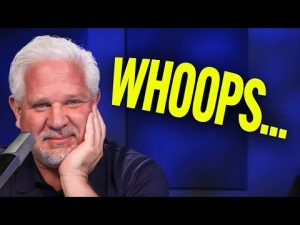**The Unfolding Saga of January 6: A Glimpse into One Defendant’s Journey**
On January 6, 2021, a day that many Americans will never forget, the United States Capitol was stormed during a protest that turned chaotic. Among the defendants caught in the subsequent fallout is Timothy Hail, a man whose narrative is as captivating as it is complex. Once an employee of the United States government, Timothy found himself incarcerated and labeled a domestic terrorist, all for attending a rally to hear his favorite president speak. But his story took a turn recently when his conviction was overturned, leading him to reflect on the deep scars left by that infamous day.
Timothy’s experience in the DC jail, often referred to as the “DC gulag,” reveals the chilling environment faced by many January 6 defendants. He recalls feeling like a character in a horror movie, stripped of his civil liberties and subjected to harsh conditions. The smears painting him as an extremist were not only damaging but fundamentally altered the trajectory of his life. He was denied bail, due process, and even basic rights, such as access to medical care and religious services. Imagine being locked away with no one to advocate for your rights—a nightmare scenario that quickly became his reality.
With a solid stint of twelve years protecting his country as an Army administrator, Timothy never expected that his attendance at a political rally would land him in solitary confinement for over a year. His prior life, filled with laughter and service, fell apart upon his arrest. While material possessions can often be rebuilt, the blow to his reputation and the loss of time in confinement presented a much steeper hill to climb. Timothy emphasizes that while he managed to retain his mental fortitude, his health suffered, and his past life lay in ruins.
As Timothy’s conviction was vacated, he highlights a significant point: the overwhelming level of infiltration on January 6. His assertions reveal a web of undercover agents and provocateurs allegedly inciting violence within the crowd. The notion that the event was an organic uprising has been challenged by his claims of government infiltration, where some individuals were reportedly working to escalate conflicts with law enforcement. Such allegations cast a long shadow over the day, raising pertinent questions about accountability and who truly orchestrated the chaos that ensued.
Looking ahead, Timothy expresses hope that when the political tide turns, those responsible for “entrapment” will finally face justice. While a pardon from the former president may symbolize vindication for him and many others, the quest for true exoneration remains paramount. This desire mirrors a bigger call for transparency and accountability, where the narratives of those involved on January 6 can finally surface in their entirety.
Lastly, while financial restitution for lost time and opportunities is a topic that lingers in the air, Timothy admits it isn’t the driving force for most defendants. It’s a sobering acknowledgment that some wounds run too deep to be healed by monetary compensation alone. As he reflects on the long journey ahead for himself and his fellow defendants, Timothy shows an indomitable spirit, urging for understanding and compassion amid a tumultuous chapter in American history. Ultimately, his hope rests in the restoration of justice, not just for him, but for all those impacted by the tumult of January 6.







